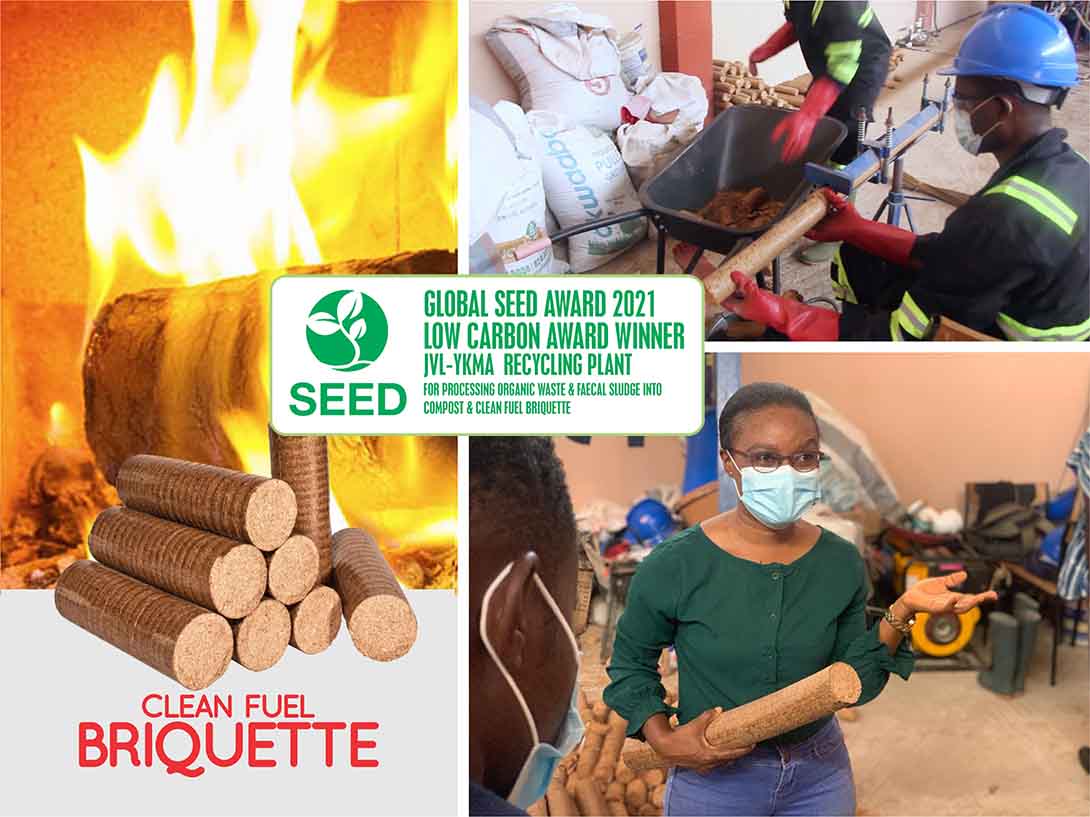
09 Jul 2021 SEED Low Carbon Award Winner, JVL-YKMA Recycling Plant, Compost and briquettes production for food, energy and cleaner environment.
The JVL-YKMA recycling plant set up is an innovative Public-Private Partnership between Jekora Ventures Ltd (JVL) and the Yilo Krobo Municipal Assembly (YKMA) that recycles source-separated foodwaste from the markets, faecal sludge from public and private toilets, woodwaste, and rice husk from the mills to produce compost and briquette as soil amendment and low cost alternative fuel wood respectively.
The plant operates on a self-financing circular economic business model. Which is easy to replicate, locally-led, and proven use of low-cost and appropriate technologies.
Eco-inclusive Impacts
JVL-YKMA recycling plant processes up to 1,800 tons of organic solid waste and up to 5,000 cubic meters of fecal sludge to produce up to 200 tonnes of compost and up to 1,000 tonnes of low-cost fuel briquettes annually.
Contributing to better waste management and sanitation in the Municipality, supporting landfill lifetime, raising awareness on waste segregation at source and waste-to-income to local communities, and reducing high dependence on wood and charcoal and their negative impact on forest resources.
- Providing efficient sanitation services to residents of Yilo Krobo municipality
- Creating decent work and skills training at the plant and along the supply chain to improve livelihoods
- Building capacity of farmers, students and young professionals on organic waste management and compost
- Treating up to 300 tonnes of foodwaste and up to 5,000 m³ of faecal sludge annually
- Reducing high dependence on wood and charcoal and the negative impact on forests
- Utilising 1,500 tonnes of wood waste and rice husks for briquettes, which are traditionally burnt openly
- Leading by example as a locally proven, circular economic model for future replication and expansion across the nation.
- The aim is to remain a self-financing enterprise. Breakeven is estimated to occur within three (3) years after commencement of plant operation.
